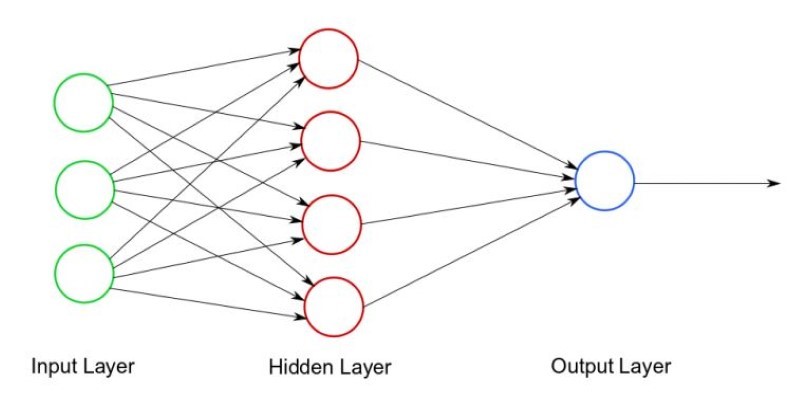Before deciding, people rely on the opinions of others. It covers artificial intelligence marketing as well. Companies enhance credibility using social proof. Case studies and testimonials highlight actual outcomes and happy consumers, comforting future shoppers. Trust is vital in an environment full of artificial intelligence tools. Before selecting a solution, buyers want evidence. While case studies offer thorough examples of success, testimonials from actual users help eliminate uncertainty.
These components enhance the potency of AI marketing. Companies have trouble convincing consumers without social proof. People demand evidence of advantages, and AI tools seem complicated. Companies have to apply case studies and testimonials deliberately. This article examines social evidence in artificial intelligence marketing and shows how companies may expand through case studies and testimonies.
What Is Social Proof in AI Marketing?
Social proof is the act of people following others. In artificial intelligence marketing, it is applying case studies, testimonials, and reviews. These components guarantee possible consumers that an artificial intelligence product is reliable. Given its complexity, artificial intelligence technology can make consumers reluctant to commit money. Social proof clears uncertainty. People are more sure of their choice when they see others gaining from an artificial intelligence application. In artificial intelligence marketing, several forms of social proof abound.
Testimonials relate to personal experience. Case studies offer rich success tales. Trust also improves with awards, professional recommendations, and ratings. These elements enable artificial intelligence startups to stand out in a crowded market. AI marketing relies on confidence. Consumers avoid a product if it seems unreliable. Social proof closes this difference and helps AI solutions be more convincing and relevant. Businesses have to use social proof carefully to draw in and keep customers.

The Power of Testimonials in AI Marketing
Testimonials are brief accounts from happy consumers outlining how an artificial intelligence solution solved a problem. These messages help to personalize and relate marketing more easily. People believe in other users more than they would believe in corporate ads. The words of a content customer seem real. By highlighting actual events rather than commercial claims, testimonials foster emotional bonds. Putting quotes on websites, commercials, and social media increases credibility. Even better are video testimonies; seeing and hearing a genuine person builds confidence.
Good references point to certain advantages. Broad remarks are less convincing. Strong testimonials show how precisely artificial intelligence solved an issue with definite outcomes. For instance, "This AI tool reduced our customer service time by 40%" is more striking than "Great product." Artificial intelligence firms aggressively compile quotes. Getting comments from contented users creates a library of favorable reviews. These quotes persuade prospective clients to trust the artificial intelligence solution.
Case Studies: Proving AI Success with Real Examples
Detailed success stories from case studies show how an artificial intelligence product benefited a company or person. Unlike testimonies, they provide solid statistics and great insights. A good case study is organized precisely. It starts with a challenge, goes on to explain how an artificial intelligence solution fixed it, and shows quantifiable outcomes. These specifics show how well artificial intelligence works in practical settings. An artificial intelligence marketing tool might enhance ad targeting.
A case study may include data like "Conversion rates increased by 50%," explaining how a corporation raised sales utilizing artificial intelligence. Such figures help make the case study more convincing. Case studies highlight the actual uses of artificial intelligence, thereby helping companies appreciate it. Successful outcomes help decision-makers gain confidence. Artificial intelligence firms should develop case studies for many sectors to draw varied clients. Posting them on websites and social media creates involvement and confidence.
How to Use Testimonials and Case Studies Effectively
AI firms have to use case studies and testimonials carefully. These instruments perform best when positioned deliberately.
- Show Testimonials on Key Pages: Put testimonials on landing, home, and product pages. Readers should see them right away. Testimonials create confidence more quickly and strategically. Having them close to call-to-action buttons drives interactions. Make sure they have maximum influence on the commodity or service under promotion.
- Keep It Short and Engaging: Short testimonies keep readers' curiosity, while long reviews lose influence. Pay close attention to basic elements. A strong testimonial sums up the issue, fix, and outcomes quickly. Case studies should be easily skimmed but ordered. Bold highlights or bullet points help reading by nature. Interactive materials increase response rates and retention.
- Update Regularly: New testimonies keep credibility. Reviewing past times seems pointless. Frequent updates highlight ongoing excellence. AI startups should constantly get comments. Including current events shows continuous relevance. Consumers value recent insights. Turning over testimonials keeps marketing materials interesting. Frequent updates reassure prospective consumers of the product's ongoing potency.
- Use Video Testimonials: Video testimonies create strong emotional ties. Observing and hearing happy clients lends credibility. They give marketing initiatives credibility. Short, interesting films are excellent. Put them on advertising, websites, and social media. Subtitles assist viewers without sound. Excellent manufacturing greatly increases effectiveness.
- Highlight Specific Results: Good testimonies mostly emphasize observable results. Data-driven success stories inspire customers. Use numbers like "Sales increased by 50%" instead of nebulous compliments. Emphasizing certain enhancements enhances reputation. Real figures should be included in case studies. Clearer results will be more convincing to possible customers.
- Share on Social Media: Social media helps case studies and testimonies reach more people. Sites like Facebook, Twitter, and LinkedIn increase involvement. Real client experiences draw in prospects. Invite readers to share and comment. Tagging happy customers increases authenticity. Share success stories often to keep viewers interested and foster confidence.

Conclusion:
Marketing artificial intelligence depends on social evidence. Case studies and quotes highlight achievements, boosting artificial intelligence products' legitimacy. Consumers become more confident when they see tested outcomes. While case studies give thorough analysis, testimonials tell personal tales. Both help build a business's name. For the best effect, artificial intelligence companies have to employ them sensibly. AI marketing becomes difficult without social proof. Before making investments, customers want comfort. Strategic application of these instruments increases success and credibility.











